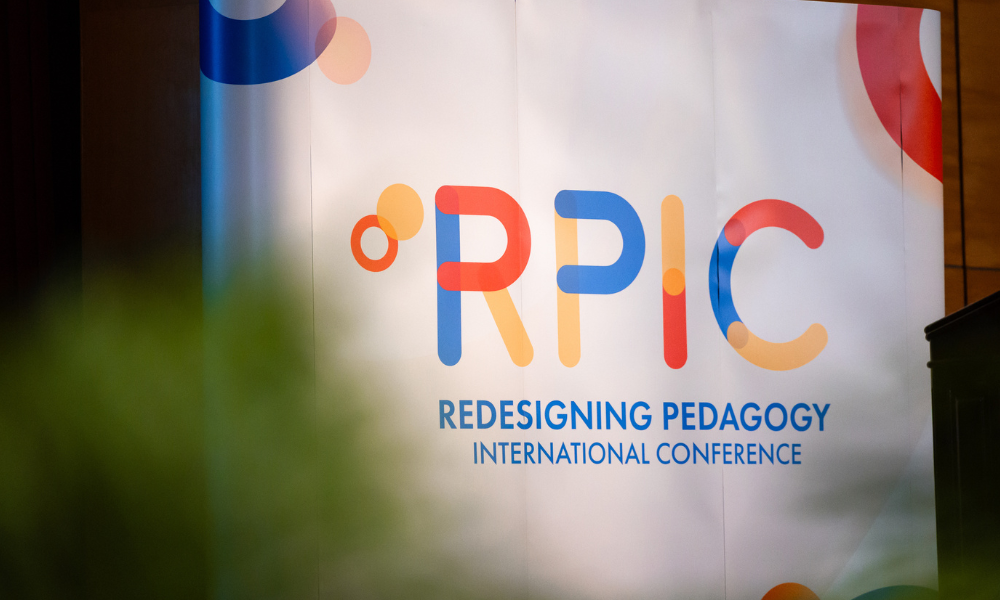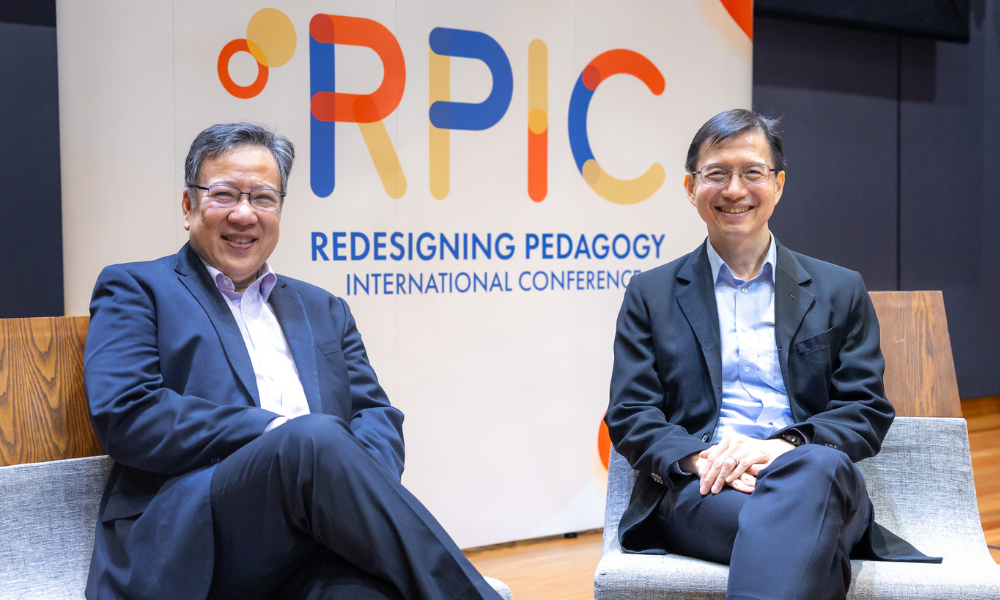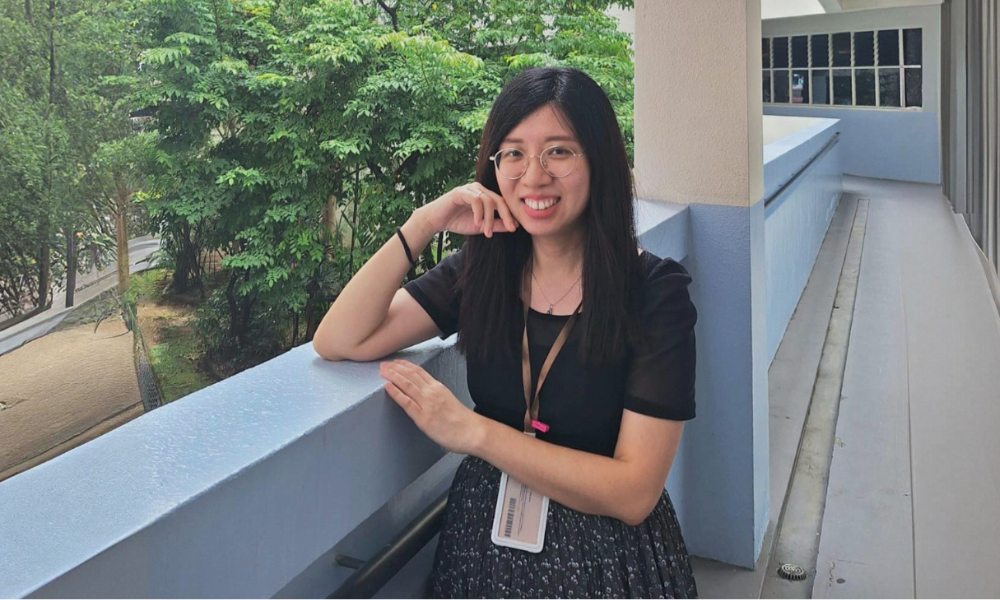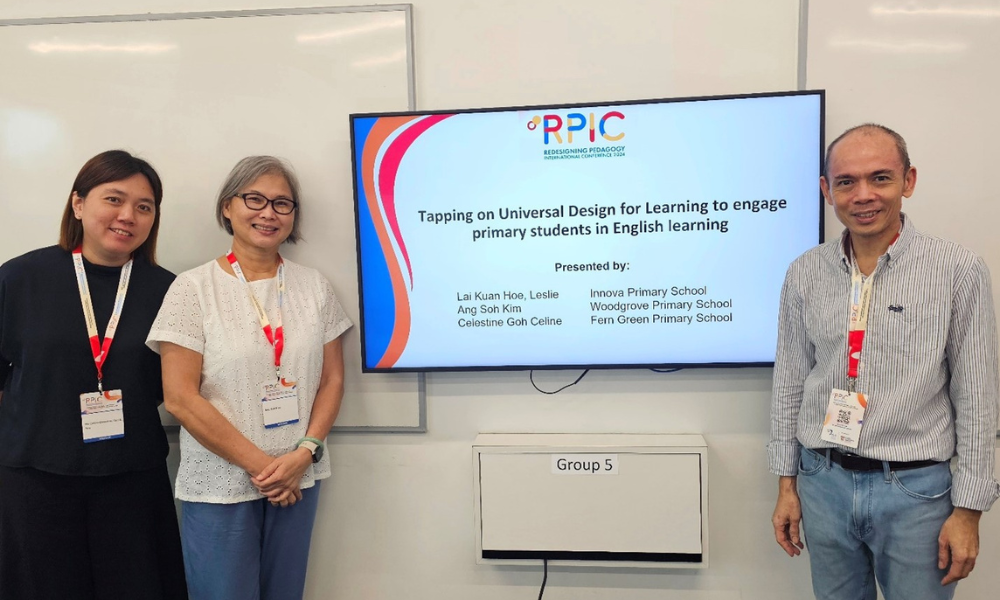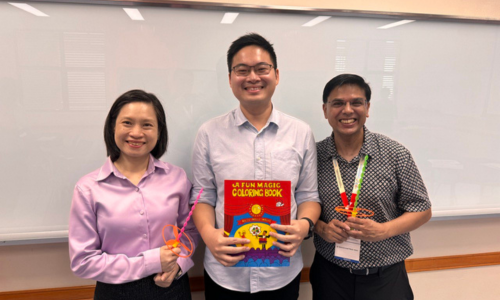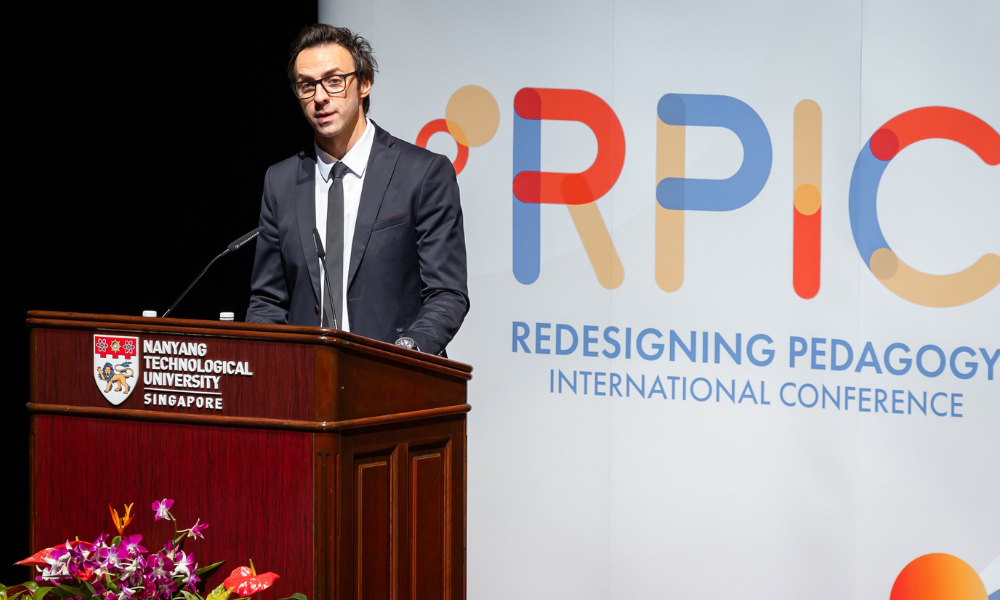Through the Lens of Research
Teaching Fellow Tan Liang Soon is always looking for possibilities. How can learning be improved? How can teaching be done differently? What else can we do? For Liang Soon, “research” is just another word for the exploration that he is constantly engaged in.
Even as a teacher, Liang Soon was always seeking ways and means to combine theory and knowledge with teaching practice and learning.
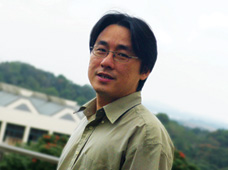 His explorations – in schools and in the Educational Technology Division (ETD) at the Ministry of Education (MOE) – have led to some innovative developments to benefit learning both within and beyond his field of Math.
His explorations – in schools and in the Educational Technology Division (ETD) at the Ministry of Education (MOE) – have led to some innovative developments to benefit learning both within and beyond his field of Math.
When asked to describe the role of research in relation to teaching, one word says it all for him: Significant.
Through the lens of research, he can more clearly see what is and what can be – myriad possibilities that can significantly impact practices today and influence the future of learning.
Liang Soon has found some of his answers through integrating research and practice. His present secondment to teach Math at NIE has opened up new opportunities to bridge theory and practice.
Q: Tell us about some of the innovations you developed when you were teaching.
A: One aspect I was looking at was how we can integrate ICT meaningfully into learning and teaching. I think ICT has potential for developing certain skills in pupils. However, it needs to be undergirded by pedagogy.
In the school where I was teaching, we were exploring how collaborative learning can take place by leveraging on ICT. Because we were trying an integrated curriculum approach, we worked with different departments.
We wanted students to be engaged in collaborative problem solving across the Chemistry and Biology domains. We designed a problem task situated in a “detective game” setting. Students had to go around the school to investigate this “murder” case and, at the same time, collaborate through a virtual platform. We also created an e-Portfolio system for developing and showcasing students’ learning dispositions.
Q: Would you say your experience as a teacher influenced your research?
A: Definitely. It has helped to augment that iterative process between theory and practice in the translation research that I’ve done as an attempt to improve practice.
I’ve been involved in small-scale action research back in school, with the e-Portfolio project, which is practice-based. That was back in 2006/2007. I shared the idea at one of the CPDD seminars, and I believe the e-Portfolio team in NIE is now working with MOE to try this out. I’m encouraged to see that it is moving forward.
I was also doing programme-level research when I was in ETD, to evaluate the FutureSchools programme. We looked at various aspects, like how the ICT-enabled learning and teaching was designed and developed on a school-wide level, and the influence of school-level and environmental factors. This research was very important in informing the next phase of the FutureSchools programme.
Q: What do you think is the place of research in the classroom?
A: I feel it boils down to practice-based research. Especially when you talk about “teaching less, learning more” – teaching for understanding, effective teaching, engaged learning for the students.
If teachers at the classroom level believe in and want to work towards such meaningful and engaged learning, they really ought to see their students – whom they interact with constantly – as the best mirror of their teaching.
But in order to do so, you need to have some kind of systemic or structured approach. I’m alluding to some type of action research.
Q: You mean, teachers have a role to play in bridging research and practice?
– Tan Liang Soon, Mathematics and Mathematics Education Academic Group
A: It’s a two-way thing. Because when you are teaching, you understand the unique sort of challenges that practitioners face in class.
But teachers can’t do it alone. And researchers can’t work in silos; they have to engage continually with teachers in schools. If practitioners can have that constant conversation with researchers, this will help both parties to understand each other.
Back in ETD, this was common practice. We worked with researchers to do design-based research in schools, where the researchers were really engaged with teachers on the ground, to better understand the learning and teaching needs and difficulties.
At the same time, the interaction allows teachers to better appreciate the theoretical basis that researchers come with. The teachers will see that they can learn something new if the researchers share their perspective, and they are able to link what they are doing with what the empirical evidence shows.
Q: How do you think teachers can benefit from research?
A: I think it really all boils down to teachers as reflective practitioners. It has helped me as a teacher, to reflect on my practice as a teacher. It has also helped me to view things at a macro level, like in how the FutureSchools programme was being implemented.
I am now doing an exploratory study on the mathematical modelling (MM) experiences of secondary school pre-service teachers. MM is a key component of the new Math syllabus but it is pretty new in its implementation and teachers still lack the confidence to do it. So I’m doing this study to find out how I can structure my course to impact pre-service teachers’ confidence and competence in carrying out MM with their students.
So from action research in schools, to programme-level evaluation, and here with my teaching and exploratory study, I would say the whole experience has been significant.

